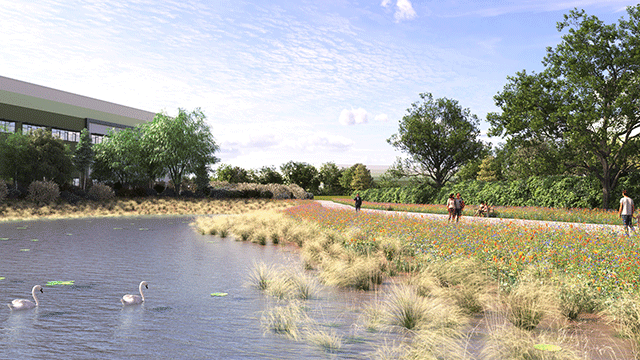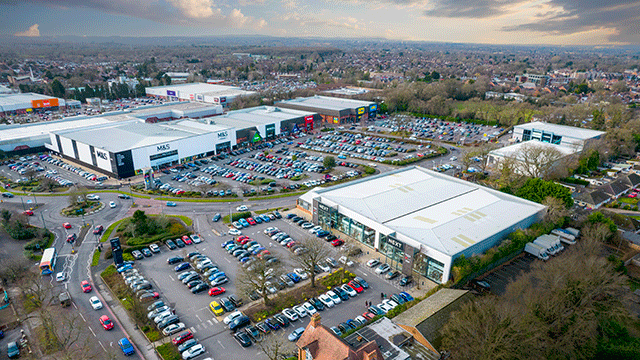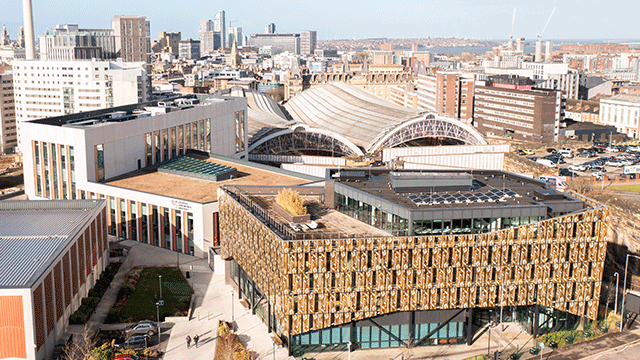Over the past five years, EG has been engaging with and highlighting some of the brightest next big things in the built environment. Through our Rising Stars awards project and Future Leaders training programme we have amassed an alumnus of close to 100 potential new leaders of real estate. After a year like never before, EG asked the next generation three questions about the future of the industry:
- What the outlook for real estate in 2021 and beyond is
- What will be the biggest catalyst for change in the sector
- Who (or what) will be the most influential in real estate in the next five years
Here is what they had to say. A unique look into how to future-proof your business for success.
Jack Sallabank, founder, Future Spaces Studio
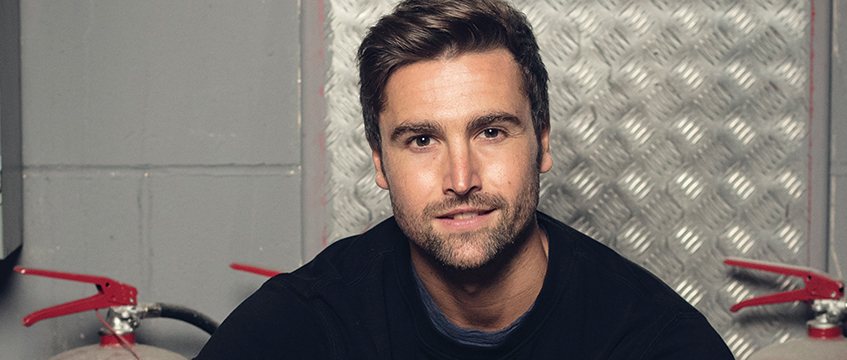
OUTLOOK
I think some real estate organisations will go from strength to strength, while others will increasingly fall behind. This was a trend playing out pre-Covid, but post-Covid it will accelerate. Those organisations that have prioritised diversity of talent and cultures, which support and enable innovation, will be the ones to flourish. Those that have stuck with business as usual will be left behind.
CATALYST
At the start of 2020, without hesitation, I would have said the climate crisis, but of course Covid has tipped everything upside down since then. There is a lot of talk about a post-Covid seismic shift in how and where we work and in turn a shake-up of our cities. How much of this will play out remains to be seen but I do hope it is a catalyst for change.
In a few years if we are all cramming on to Tubes and trains from 7am to sit at a desk staring at a screen before arriving home too late to have dinner with the family then collectively we will have failed. What the past year has dramatically illustrated is that the future is perilously difficult to predict. While that creates risk and vulnerability, it also presents opportunities.
MOST INFLUENTIAL
Anyone bold enough to do things differently. I think the sector is exciting to be in at the moment because there are some cool people doing some good things. It will be interesting to see what the likes of Steven Skinner (HB Reavis), Juliette Morgan (British Land), Angela Maurer (Landsec), Richard Upton and Martyn Evans (U+I), Ross Bailey (Appear Here) and Nick Searl (Argent) do in the next five years.
Matt Sampson, development director, U+I
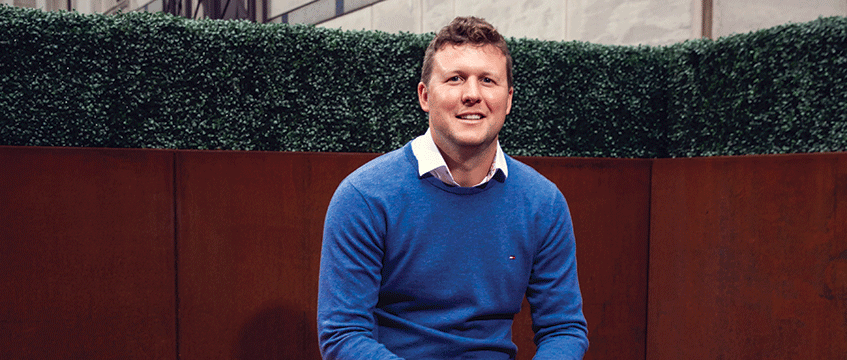
OUTLOOK
What a horrendous time to be a crystal ball gazer! There is no getting away from the fact there will be some big and varied challenges for everyone in real estate in 2021, and far too many to name here. I’m a big believer in trying to keep things simple but I actually think those who embrace complexity, innovation, and nuance will fare best in 2021.
I’d much rather be developing bespoke, mixed-use communities with a variety of uses, tenures, types and partners that have the best chance of adapting to the rapidly shifting trends than delivering a mono-use shopping centre or a housing development of identical, uninspiring, off-the-shelf units that were looking behind the times even before the pandemic.
CATALYST
Pandemic-related self-reflection and the trend shifts stemming from that will be the biggest catalysts for change in real estate in 2021: Should I blend the boundaries of living and working; how important is green open space to me; do I need to own a car; how much technology do I want in my life; do I want to properly contribute to solving the climate crisis…?
I’m particularly interested to see how sustainable transport trends impact on real estate and whether multifunctional transport hubs, micro mobility solutions, pedestrian prioritisation and healthy streets become mainstream.
On a side note, I’ve been really impressed by Homes England’s innovation and pragmatism in recent years and I expect it to be an even more important catalyst for change in 2021 and beyond.
MOST INFLUENTIAL
For the types of placemaking projects I am involved in, local communities remain the most powerful and impactful voice – and with engagement technology such as Built-ID providing even better digital platforms to engage a wider group of people, I don’t expect this to change soon.
Specific people I will be tracking in 2021 are Dan Labbad, to see in which direction he steers the Crown Estate over the coming years; Jackie Sadek, after seeing the progress UKR has made in Biggleswade and reading the excellent Broken Homes; and of course my colleagues at U+I, who are planning to be at the forefront of placemaking innovation and the garden community movement.
Zoe Sharpe, development manager, Dandara

OUTLOOK
Tough but surmountable. As ever, out of adversity will come potential opportunity for robust and established businesses as well as newcomers but also for new ways of thinking.
There is still a systemic undersupply of homes. 2020 saw us become much better acquainted or reacquainted with our neighbours, our neighbourhoods and high streets that have been neglected for years. Expect a sharp refocus towards an emphasis on quality of life and amenity space within housing and, indeed, all developments for the communities that they will serve.
Better engagement and education between our industry and the public sector as well as end users is a priority. Occupiers of homes and workspaces are availing themselves of much more choice and flexibility. For instance, home renting is becoming a real alternative to owning. The tenant, as customer, has options and is becoming more discerning. Residential landlords will have to rise to this challenge and be much more customer-focused.
Could this also be fertile ground for a move from the UK obsession with home ownership towards home rental as a preference?
CATALYST
Communities and new cultural imperatives are being judged by the green agenda and the environment that informs it – real estate was very much under the spotlight in this respect. 2020 brought sharply in to focus how energy is sourced, how our health is at risk but also protected by robust health and science infrastructure, how attitudes are constantly changing towards transport and how we experience and appreciate space, fresh air and our planet. And how our lives can change overnight.
The biggest catalyst for change will remain the green agenda together with the speed of technological advances that will help achieve the goals within that agenda. Discussions between the private and public sector must be encouraged to enable the real estate industry to meaningfully contribute towards hitting the targets being set for all of us, not just real estate, in order to tackle the climate emergency that is having a global impact.
MOST INFLUENTIAL
It will be no one player or ensemble of players. It will be an orchestra of collaborators across all sectors and disciplines. Those who can listen as well as integrate tried-and-tested methods with new ideas will have the greatest chance of delivering.
James Townsend, co-founder and chief executive, Kontor
OUTLOOK
“Reports of my death have been greatly exaggerated” The office, 2021.
Quality over quantity will be key as occupiers flock back to the office once safe to do. Revised working hours dictated by employees mean buildings will need to be accessible 24/7. That, balanced with remote working trends, will lead to the office becoming a more collaborative environment with a mix of social environments and quieter deep work areas. A weak development pipeline and lack of compliant stock will lead to record rents for prime stock in due course.
CATALYST
Balance. A greater focus on health and wellbeing. A realisation of what you do to your body in the first half of your life ultimately determines the quality of the second half of your life and that we must take a proactive approach to health and wellbeing, rather than a reactive approach.
MOST INFLUENTIAL
Old school becomes the disruptor. Your friendly service-orientated professional landlord, no longer the passive rent collector but instead your greatest business partner. Open communication, managed spaces, flexible terms, business funding arrangements with access to cheap capital and exemplary customer service will all become standard. Rewarding the quality tenant with a true partner not only when things are good but by your side when things don’t go to plan.
Natasha Trathen, senior associate, global products and solutions, Nuveen Real Estate

OUTLOOK
The real estate industry is responsible for more than a third of the world’s energy consumption, and almost 40% of global CO2 emissions. As governments, investors and the population at large focus more on climate change and the impact we have on our environment, the real estate industry (to the extent that it hasn’t already) will need to invest in new technologies and find new ways to improve the sustainability of buildings.
While some real estate owners have started to incorporate smart building technology, energy-efficiency initiatives and focus on health and wellbeing across their portfolio already, I think this will grow significantly across the industry in 2021 and beyond.
Additionally, the pandemic has highlighted the issues surrounding societal inequalities, particularly within the built environment. Therefore, impact investing is likely to play a greater role in the 2021 real estate agenda, with trends such as the automation of work, rising isolation and inequality and changes to urbanisation coming to the fore.
CATALYST
The pandemic has been a real catalyst for change in the industry, following on from the changes to the way we live and work that began this year. For instance, the industry should look to capitalise on the indirect effects of the lockdown, such as an improvement to air quality in urban areas and a reduction in global CO2 emissions.
The pandemic has also brought to the fore the future of work and the office, with factors such as the environment, health and wellbeing being a key factor that the industry will have to address.
From an environmental standpoint, extreme weather events such as wildfires, flooding and storms, which have become even more prevalent, will have a huge impact on real estate and its value, making it pivotal to integrate ESG factors into the real estate investment process.
MOST INFLUENTIAL
Those who can influence the environmental and social agenda will be the most useful people to know to help drive value, identify opportunities and navigate risks at the real estate level, as well as helping to address environmental and social issues from a broader perspective.
Impact investing is a key focus area for real estate, so real estate investors that generate a positive impact on the environment and society will be very influential on the real estate industry.
Maria Tsvetkova, senior associate, FORE Partnership

OUTLOOK
Sadly, I think 2021 will be another year washed in our calendar as we wait hopeful for the vaccine rollout and subsequent slow return to a new normality. I am, however, very positive for the future after. I think we will emerge from this crisis, as humanity has done in the past, and the world will be changed and hopefully becoming better.
Changes are on their way and people trying to resist them and pushing to return to the old ways will struggle. Some sectors will inevitably come out as “winners” (social infrastructure, residential, logistics), but I don’t think the rest of them will be “losers” – people will eventually go back to restaurants and hotels, office will be needed. The buildings in these sectors will, however, have to work harder to stay relevant as they go through a consolidation. There will be flight to quality. I will only go to an office if it is better and more comfortable than my home.
CATALYST
There are four key wider human priorities that will drive corresponding changes in real estate:
- A bigger push for fighting climate change and sustainability. We have seen satellite photos from above China and that it is possible to stop being so pollutive from one month to the other. Of course, not all industries will be as affected by this trend, but real estate (together with manufacturing, agriculture, transport and energy) will be one of the affected industries as one of the biggest polluters on the planet
- A focus on wellness. The majority of us discovered good coffee, daily exercise, eight hours of sleep and getting fresh air (and good-quality indoor air) is possible even with demanding full-time jobs, so this newly found appreciation of nature and self-care is here to stay and all sectors should cater for this.
- Strong urbanisation but slower globalisation. Sadly for someone who lived in three different countries, I do think there are many trends slowing down globalisation (fear from pandemic and travel restrictions, protectionist politics and populism, ability to work remotely). I believe we will see a slowdown of global movement of people. However, urbanisation is here to stay, despite our recent reunite with nature and rural homes. Once culture, education, leisure and some sort of office working is possible and regular, a lot of digital nomads will return to cities that provide a much stronger social infrastructure
- Technology and the remote economy. I specifically say remote economy as office and retail are not the only sectors that will get affected by it. For example, having discovered that Zoom works well, there will be a lower amount of business travel, so the hotel industry will have to adapt to this. I am not saying it will disappear as human relationships are formed in person, not virtually. The same applies to office space. Hopefully Covid-19 will introduce bigger flexibility in working (a welcome change in work-life balance), which would be a combination of remote and face-to-face collaboration
MOST INFLUENTIAL
People who have operating capabilities, those who know how to run a care home, how to attract customers to a leisure offer, or how to keep a serviced office space safe and relevant.
Our industry is moving from a B2B model to B2C and customers demand a lot more than just free space to occupy. Sadly, our industry doesn’t have many individuals who understand both the bricks and mortar and the operating “soft” side of real estate, so while we are all going through a transformation process and a steep learning curve, I think individuals who are ahead of their peers on this front would be valuable to know and have on your team.
Olga Turner, managing director, Ekkist
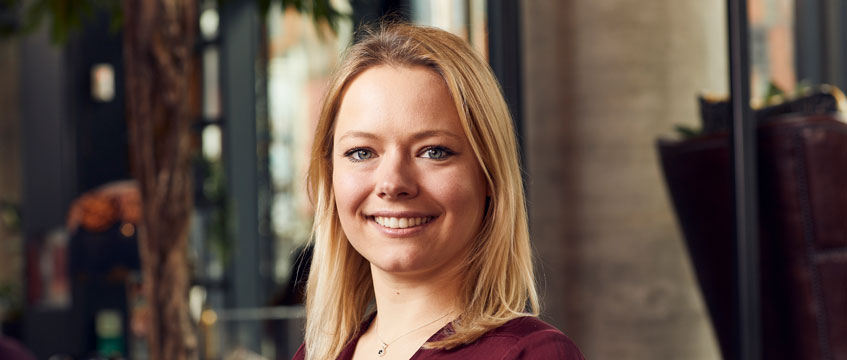
OUTLOOK
I think the outlook is positive and one of innovation. Major economic shifts and disruption tend to lead to new ideas, new working patterns and new ways of thinking. 2021 will see a wave of innovations as a result of everything we learnt in 2020.
CATALYST
The biggest catalyst for change will be a difference in the way we think about use classes and buildings as a specific place for one type of activity: this isn’t realistic or flexible enough in today’s world and more flexibility is needed to build resilience. This will drive the greatest change.
MOST INFLUENTIAL
Owners and operators of large estates and large sites that will need to build resilient and truly flexible strategies for the future and will be interested to hear new ideas and approaches.
Lucy Whitfield, associate, residential valuation, Cluttons

OUTLOOK
There was no escaping change this year so it will be interesting to see how the changes that have been forced upon us will become part of our everyday life. I think we will see a more connected industry embracing better use of technology.
CATALYST
Climate change. The sustainability agenda has been waiting on the backbench for too long.
MOST INFLUENTIAL
The most forward thinking and adaptive to an ever-changing world will be the most powerful and successful. Those companies and individuals that demonstrate good values of diversity and inclusion will also attract the best people to work for them.
Charlie Wade, EMEA managing director, VTS

OUTLOOK
The industry was transforming prior to Covid but the pandemic has accelerated change at a pace unlike any other we’ve experienced before. Technology plays a key role in this transformation, enabling us to work remotely, allowing us to continue to collaborate in a productive way, while providing access to the information and insights we need to help navigate a rapidly evolving and challenging market.
As a result, the pandemic has caused a fundamental and permanent shift in how technology is perceived, used and consequently ingrained in the new normal.
Looking to 2021 and beyond, there will undoubtedly be further accelerated technology adoption, especially now the industry is aware of the operational benefits. The market’s recovery will be slower than many previously expected and the powerful insights that technology can unlock through real time data/analytics will help to support strategic decisions going forward.
Data is commercial real estate’s most powerful asset.
We can expect to see the full shift from paper to platform across many traditional workflows. The process of leasing space, for example, will certainly start online as landlords create a digital experience for their assets and their tenants and customers engage accordingly. As the managing and viewing of space becomes digital, so it becomes possible to modernise the following workflows involved in that lead-to-lease process, reducing the friction involved in the transaction today, increasing the collaboration across the different players involved, and ultimately driving a better experience for everyone.
The increased everyday use of technology will also empower the industry to reaffirm what it is at its core: a relationship business. The pace of business over the past 15 years has changed and you are able to do a lot more in a working day. Technology has played a big part in supporting our ability to do more but, as a result, people are spending more time at their desk than out in the field meeting clients, prospects, and peers.
When the world does eventually go back to normal, the next wave of technology adoption will challenge the need to be at your desk to do your work. The powerful supercomputer we carry around in our pocket will unshackle us from the desk computer and companies will look to leverage tools that provide a truly modern and mobile experience. In turn, this will enable individuals to continue to match the pace of business change while fostering more time for relationship building and networking without jeopardising the work.
CATALYST
Covid was the catalyst for immediate change, forcing many businesses to modernise overnight, with technology stepping into support that change. I believe we’ve seen about five years’ change take place over the past five months. Pandora’s box has now been opened. As we’ve seen in other global industries, once digital change takes place at this scale you don’t then go back – change is painful, you change in the first place because the future pain of not changing outweighs the pain of embracing that change today.
The catalyst for continuing long-term change is that the gap has now closed between the use of technology in our personal lives and how we leverage technology in the real estate industry professionally. Combine this with the significant shift in tenants’ expectations as a result of landlords being forced to adapt, and setting new expectations for that consequent interaction, the organic and forced adoption of technology will change the way we do business across the commercial real estate industry.
Digital transformation is a journey not an event. There is no one silver bullet to technology adoption but companies are now on that journey in a dramatic way. Those that are not just surviving the challenging market conditions but are ultimately thriving are the companies that quickly embraced the concept of digital transformation, worked hard across every layer of their organisation to foster the cultural change needed to implement meaningful change, and made the shift to online. The silver lining to what is an otherwise terrible situation is that there is no turning back from the efficiencies we have subsequently been forced to facilitate as a result of the Covid pandemic.
MOST INFLUENTIAL
Tenants seem to hold the key in dictating the industry’s ability to facilitate a strong recovery. Across a number of sectors tenants are suddenly struggling, and new occupier demand in most major markets is at a record low, with every indication suggesting it will be slow to recover. H1 2020 take-up in London is at 38% below the 10-year average. But I would suggest that leveraging those relationships with your existing tenants, their heads of real estate – or the tenant rep agents that represent them – is a good place to start.
If the last recession is anything to go by, the head of real estate at the big tech companies such as Amazon, Apple and Google, combined with the tenant rep brokers that hold those relationships, will likely be powerful contacts to know over the next few years. While our data suggests these companies are managing better than most, despite not yet being actively back in the market looking for space, they are likely to be the businesses that will propel the future demand and drive the recovery across the office, retail and industrial sectors.
Davina Clowes, director, operational capital markets, Savills

OUTLOOK
In short, the outlook for real estate is positive despite the undoubted impact of the pandemic. The strongest opportunities for 2021 are likely to be within those sectors which benefit from demographic or social trends that have been accelerated by the pandemic. This includes life sciences, logistics and institutional residential.
Looking particularly at institutional residential – or PRS – investment looks set to accelerate. In a year of uncertainty, the asset class has shown resilience, with high occupancy and rent collection levels. As a result, it has attracted large amounts of new capital – this year 35% of investment into the sector has been from new entrants and Q3 saw £1.8bn of investment into UK build-to-rent – the highest quarter on record. This is a trend I expect will only grow stronger given that housing is a basic need, coupled with a growing population and continued supply/demand imbalances. Over the long term, residential real estate has also delivered stronger risk-adjusted returns than commercial real estate.
Despite strong recent growth in PRS and the benefits for renters of professionally managed accommodation, a lack of purpose-built stock means that institutional ownership in the sector is still low, at circa 3% of total PRS stock. There is clearly huge potential for institutions to grow their exposure to the sector.
CATALYST
Consumer sovereignty, technology and ESG have each been catalysed by the pandemic, as we’ve all reassessed our priorities on how we live and work. Of those three, the one that has catalysed the most change is the ESG agenda. A trend that is being driven by the consumer, the industry and the government.
Looking at the consumer for example, 94% of students want to see universities doing more to reduce environmental impact, according to QS’s research/survey: Sustainability in Higher Education: What more can universities do. Likewise with multifamily living, young professionals and families – who are a key target audience for such schemes – are increasingly conscious of their impact on the environment and how their accommodation fits in with their own societal values.
We have also found that investors are the main stakeholders pushing for increased ESG credentials in buildings. The increasing importance of environmental strategy is demonstrated by more than 40% of the report survey’s respondents indicating that their companies have committed to a net-zero objective.
MOST INFLUENTIAL
The consumer. Consumer power is increasing, with improved access to information, increased choice and the ease of sharing experiences. Listening to and responding to their feedback will accelerate improvements and efficiencies in the sector, all contributing to consumers’ power.
We have already seen this in the sudden changes in the residential sector in response to Covid-19: space to work from home and a garden are probably top of the wish list, with location now second. Some of these changes will be temporary and some will become permanent trends. The importance of a focus on the tenant has become even more acute to ensure outperformance of operational real estate.
The transparency we offer consumers makes landlords, developers and property managers more accountable, and shows that the effective management of buildings relies upon really understanding your consumer.
Kathryn Cripps, partner, asset management, Knight Frank

OUTLOOK
The effects of Covid-19 on real estate are extensive and long lasting as we see a number of pre-existing trends accelerating. There are sectors seeing growth as a result of technology advances and the structural shift in consumption patterns (industrial, infrastructure, data centres), while others are suffering as a result of the same patterns (retail, leisure, town centres).
We can be sure that 2021 and beyond will see change in the way we use real estate – shopping centres looking for alternative uses, working environments reimagined with a new focus on wellness and safety, and residential buying patterns changing as the drivers for decisions on where and how we live alter.
Whatever the changes are, the real estate industry is adaptable and will emerge from the current crisis and inevitably reinvent itself supporting safer, flexible and sustainable environments where people want to work, shop and socialise.
CATALYST
The accelerating shift in behaviours and the growth of technology will continue to transform the real estate profession but, for me, the real catalyst will be the increasing awareness around the importance of ESG and, more specifically, climate change.
I see energy efficiency and green technology as a big catalyst going forwards. Every part of the property industry is accountable and the potential cost to property owners, investors and developers of not acting will undoubtedly accelerate a transition to more energy efficient buildings and construction methods and will influence how we use our real estate.
MOST INFLUENTIAL
For me this is going to be the companies that adapt and develop quickly, that are decisive and keep pace with the fast-changing environment. The companies that are more sophisticated with their technology strategies, that embrace and have a holistic approach to ESG and those companies that are able to modernise their cultures to being more representative, attracting the very best talent from varying backgrounds and creating dynamic environments where talent can thrive.
Sandeep Dhillon, principal valuation surveyor, Cabinet Office

OUTLOOK
To begin with, subdued, challenging market conditions – much as we’ve seen this year with low levels of investment volumes, limited jobs growth and rising unemployment, leading to enhanced pressure on the occupational market. Towards the end of 2021, as the vaccine is rolled out and there is increasing confidence, I would expect the market to begin to show a recovery, with the pent-up demand of global equity targeting London and the UK bringing with it a bounce in investment.
I still believe we are an attractive place to invest when you compare our pricing to prime European cities and look at current bonds and interest rates. I will also be looking out for the opportunities that the last year has no doubt created for some, as they come to fruition and surprise us all.
While we are all crystal ball gazing, what really will be the effect on offices? Was this shift structural? We may continue to see lower demand for leased space with online portals becoming the medium of choice with a higher concentration of regional office hubs. Flexibility will be key.
CATALYST
Sustainability. Not just in terms of occupying more sustainably but building and designing more sustainably. The need for spaces where people can come together and share. The increase in remote working and lack of social interaction means when people reoccupy office space again there will be a greater desire for a space that fosters a sense of community.
With the increased focus on blockchain capabilities we may also begin to see a change in the way that property is traded over the next few years, with the tokenisation of real estate providing a transparent, more liquid and accessible asset class.
MOST INFLUENTIAL
With increasing digitization and adoption of AI, the most powerful individual of real estate will be one that has the power to bring people together, create sense of community and promote wellness. This individual will be one who isn’t driven just by profit margins but has heart, compassion and respect for the environment and biodiversity.
To send feedback, e-mail samantha.mcclary@egi.co.uk or tweet @samanthamcclary or @estatesgazette




